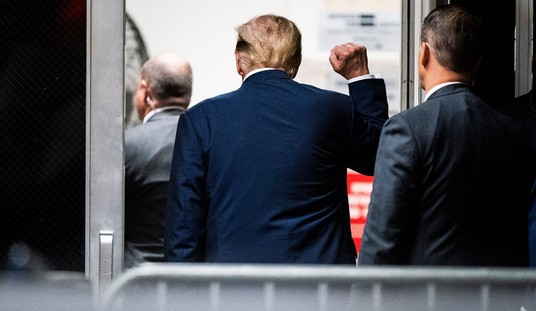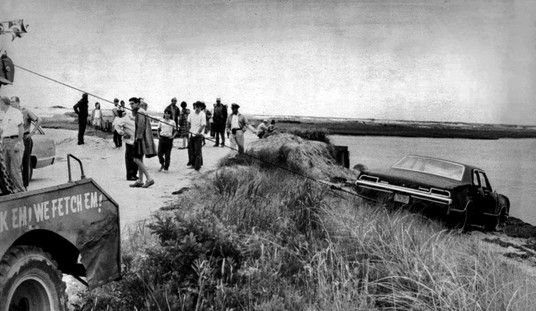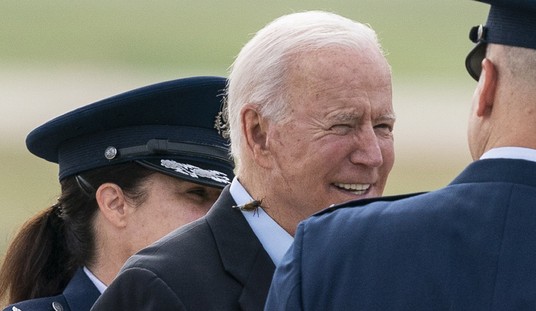The New York Times today is reporting on what many of us already have suspected and what Trump has alluded to, himself.
Presented in a recent interview with a scenario, floating around the political ether, in which the presumptive Republican nominee proves all the naysayers wrong, beats Hillary Clinton and wins the presidency, only to forgo the office as the ultimate walk-off winner, Mr. Trump flashed a mischievous smile.
“I’ll let you know how I feel about it after it happens,” he said, minutes before leaving his Trump Tower office to fly to a campaign rally in New Hampshire.
That’s right. While all the Branch Trumpidian cultists will contort themselves in unimaginable ways to twist away from this, Trump has earlier suggested that he’d leave the actual governing of the nation to his vice president, while he served as the Ronald McDonald of the government. Nothing more than a promotional gimmick for the office, in order to sell t-shirts, those dumb hats, and maybe some commemorative plates.
That, and it’ll make for great ratings for his next reality TV stint.
Early in the contest, his rivals, Republican operatives and many reporters questioned the seriousness of his candidacy. His knack for creating controversy out of thin air (this week’s edition: the Star of David Twitter post) and his inclination toward self-destructive comments did not instill confidence in a political culture that values on-message discipline in its candidates.
Those doubts dissipated after Mr. Trump vanquished his Republican opponents and locked up the nomination.
“I’ve actually done very well,” Mr. Trump said. “We beat 18 people, right?”
It was 16, you halfwit, but please, don’t let that slow your roll.
This would be the cherry on the cake to the Clinton Crime Family’s ultimate con. I’ve actually speculated that our “October surprise” could be a Trump who gives up, walks away, and leaves the GOP broken. Mission accomplished.
Told of Mr. Trump’s noncommittal comment, Stuart Stevens, a senior adviser to Mitt Romney in 2012 who has become one of Mr. Trump’s most vocal critics, said that Mr. Trump was “a con man who is shocked his con hasn’t been called” and that he was looking for an emergency exit.
“He has no sense of how to govern,” Mr. Stevens said. “He can’t even put together a campaign.”
Even Mr. Trump’s supporters acknowledge that his past campaigns had the air of a vanity tour. That impression lingers. A recent Trump news release promising “a speech regarding the election” prompted many reporters and political fortunetellers to predict a declaration of his departure. But just the fact that a routine news release prompted paroxysms of conjecture throughout the political universe suggested that, as Mr. Trump might say, “there’s something going on.”
So if that happens, where do we stand?
Alexander Keyssar, a historian at Harvard who is working on a book about the Electoral College, said the process of succession would depend on “the precise moment at which he said, ‘Nah, never mind.’ ”
The party representatives who make up the Electoral College would suddenly have real power rather than a rubber stamp. If Mr. Trump bowed out after winning on Nov. 8 but before the electors met in each state to cast their ballots on Dec. 19, then the electors could have the opportunity to vote for another candidate, Professor Keyssar said.
A majority of the 538 electors would be Republicans, but they might not agree on the best alternative candidate. If no one won a majority of the electors, the contest between the top three vote-getters — one of whom would presumably be Mrs. Clinton — would go to the House of Representatives, where each state would be given one vote, while the Senate would select the vice president. House Republicans hold 33 states to the Democrats’ 14, with three evenly split. It is unclear whether the vote would take place before or after newly elected representatives were seated.
It is also unclear what would happen, Professor Keyssar said, if Mr. Trump bid adieu after the electoral votes were cast but before they were officially counted, per the 12th Amendment, by the president of the Senate before a joint session of Congress in January. And if Mr. Trump left after the votes were counted in Congress but before he was sworn in on Jan. 20, Professor Keyssar said the closest guidance would probably come from Section Three of the 20th Amendment: “If, at the time fixed for the beginning of the term of the president, the president-elect shall have died, the vice president-elect shall become president.”
It’s an interesting concept. Not entirely unappealing, to be honest. If that’s what’s on his mind, let him do it sooner, rather than later. This may give us some hope of salvaging this nation.
Yeah. I’m on board. I might even watch an episode of his next reality TV show, if he’ll just go away now. How bad could it be? I’ve watched the entire season of the reality TV nightmare he’s starring in now, and it sucks.












Join the conversation as a VIP Member